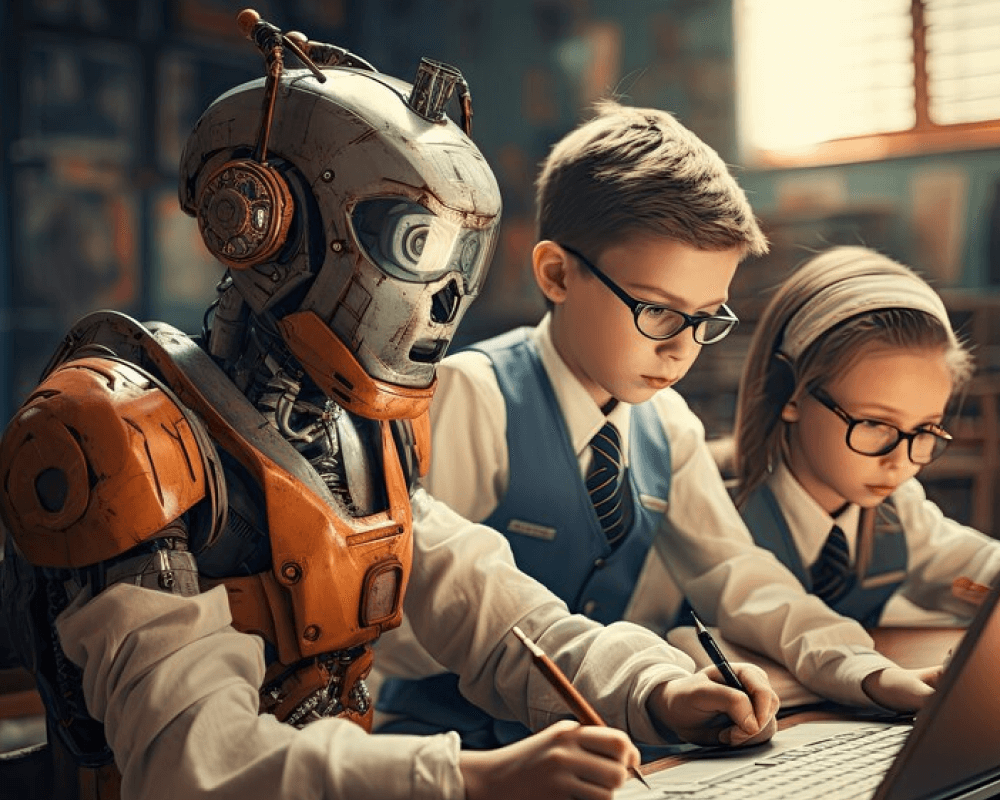June 6, 2024 By: JK Tech
Artificial intelligence is reshaping how we think about education, challenging the old classroom norms. Headlines might scream about robots replacing teachers, but the reality is far more complex. AI tutors aren’t here to dominate classrooms; they’re here to personalize learning and empower educators to become even more effective.
Imagine a classroom where every student receives instruction tailored to their specific needs and learning style. AI-powered tools can analyze vast amounts of student data, pinpointing areas of difficulty and identifying students who are excelling. This allows educators to move beyond a “one-size-fits-all” approach and create personalized learning journeys for each student. This personalization addresses a major challenge in traditional education. Students progress at different paces, and a single teaching style can leave some confused and frustrated, while others become bored and disengaged. AI tutors can bridge this gap by catering to individual learning styles.
However, AI tutors come with potential drawbacks. First, there’s the risk of bias; since AI systems are designed by humans, they might unintentionally incorporate personal biases, potentially influencing the learning paths recommended to students based on demographics rather than individual abilities. Second, an over-reliance on AI tutors might lead teachers to lean too heavily on technology, possibly neglecting to hone crucial teaching skills. This could impact their ability to manage unexpected classroom scenarios or to forge the human connections vital for student growth. Addressing these issues requires the careful development of AI systems and the promotion of a balanced human-AI partnership in education.
Despite these concerns, AI presents exciting possibilities: First, it empowers educators by automating tedious tasks like grading and basic instruction. This frees up valuable teacher time to focus on what they do best: fostering human connection, critical thinking, and creativity in their students. Imagine teachers leading engaging small group discussions or project-based learning instead of being bogged down by administrative tasks. Second, AI personalizes the learning experience for each student. Visual learners can explore through interactive simulations, auditory learners can thrive with AI-enhanced audio explanations, and kinesthetic learners can engage actively with educational games. This tailored approach ensures that each student is both challenged and supported according to their individual learning needs.
To ensure a successful future with AI tutors, a balanced approach is necessary. This includes robust data security measures to protect student privacy, along with clear communication with parents and students about how their data is used. Additionally, creating clear guidelines for the responsible development of AI tutors is crucial to mitigate potential biases that could be embedded in the algorithms themselves.
The goal is not to replace educators but to create a human-AI collaboration in the classroom. This powerful combination has the potential to make education not only more effective but also more engaging and accessible for all. So, while the classroom of the future might look different, it holds the promise of a more personalized, effective, and inspiring learning experience for every student.



